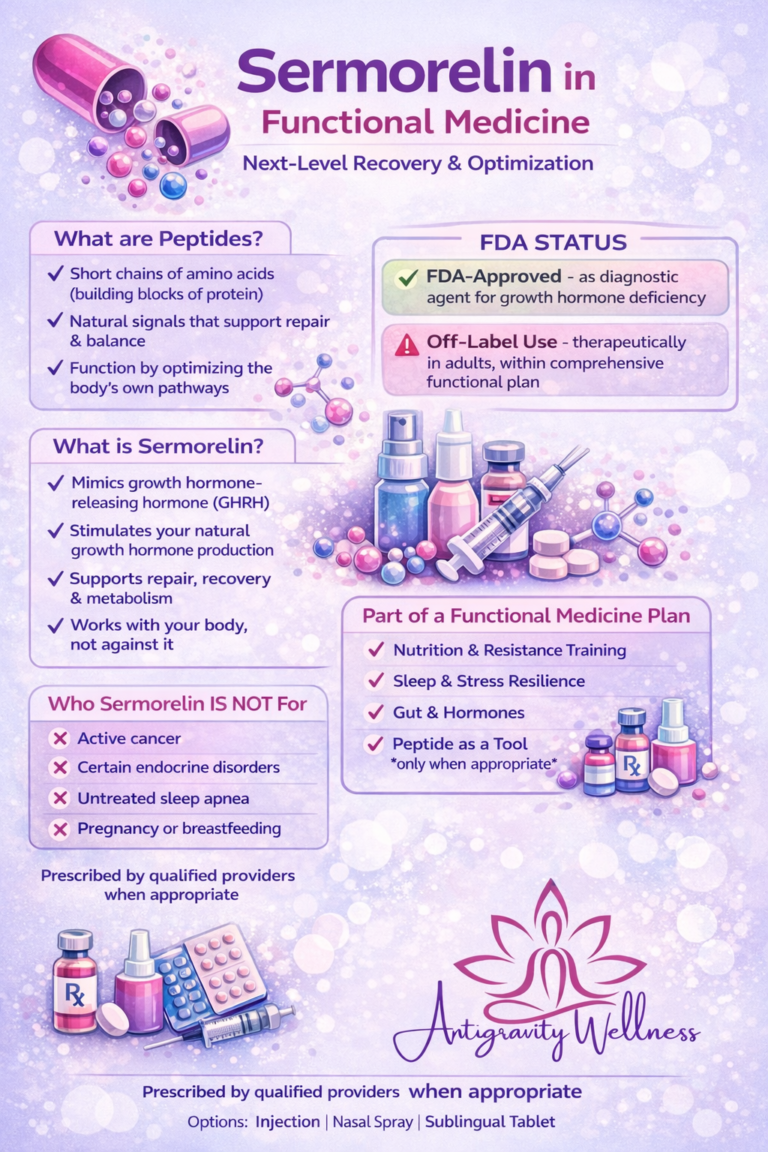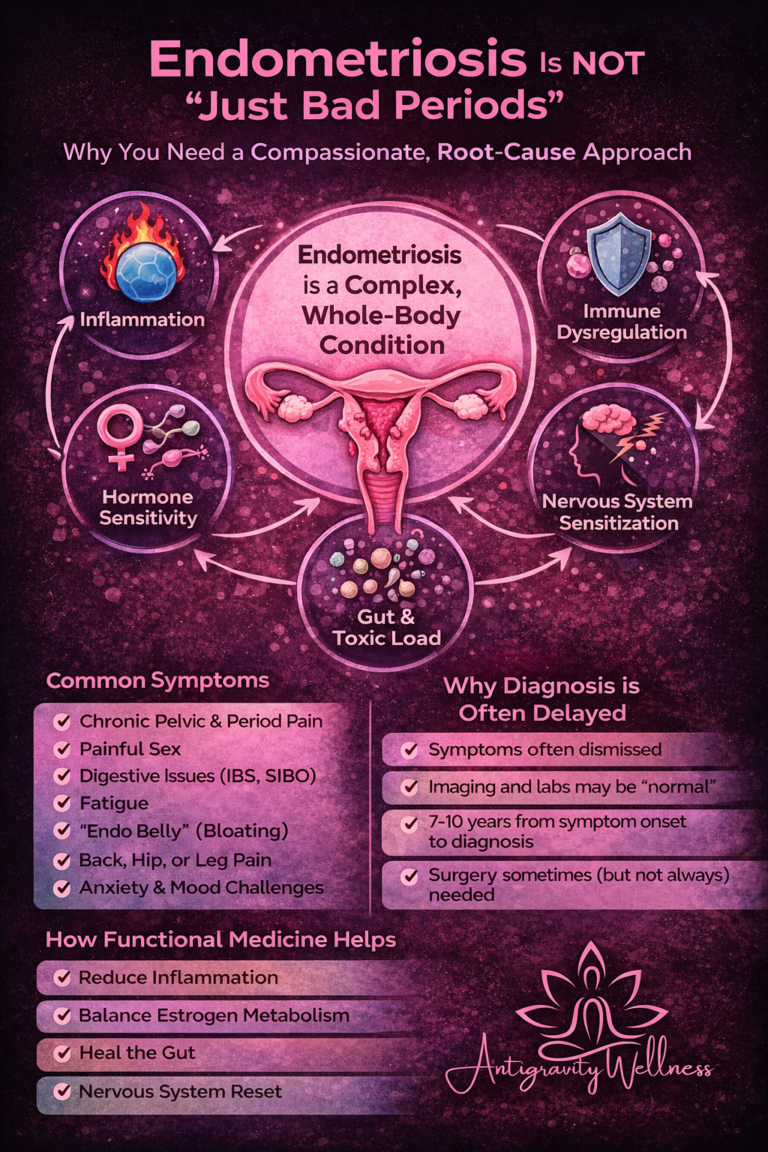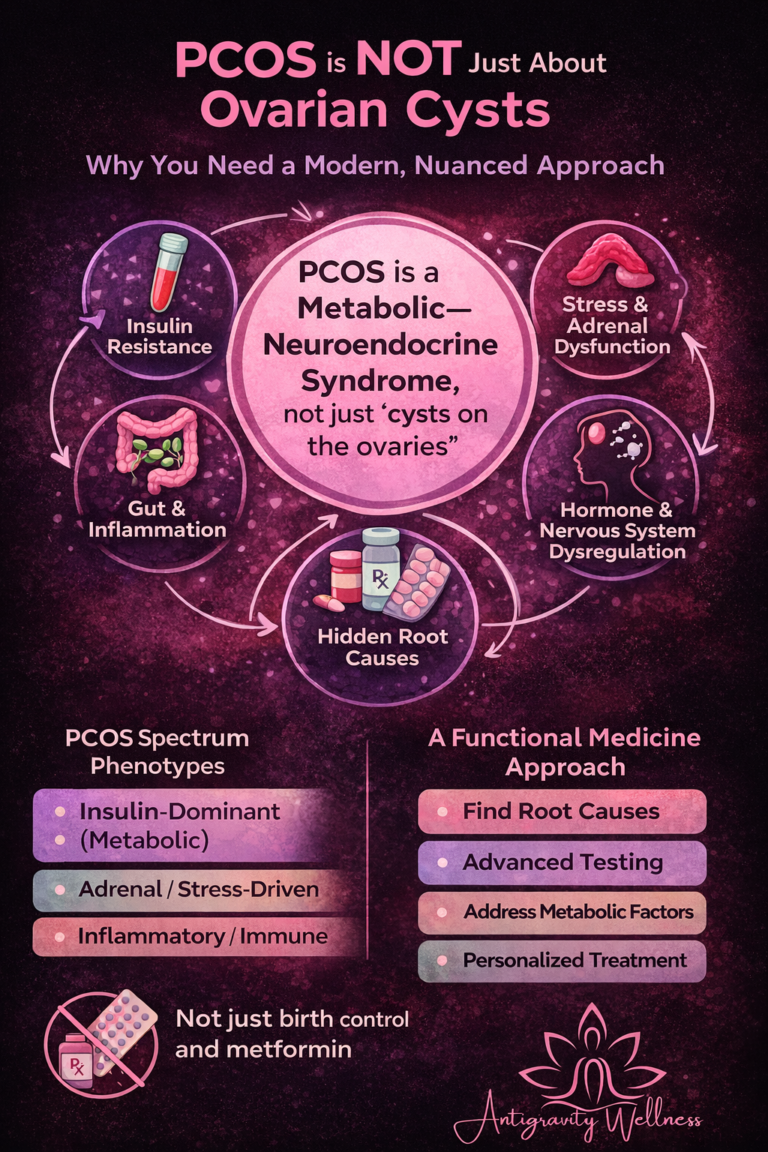
🧠 “I thought I was just burned out…”
It started with little things—slower mornings, shorter patience, feeling uninspired at work. Then came the nagging fatigue, a flatlining sex drive, workouts that felt twice as hard with half the results, and a body that seemed to be changing overnight.
A patient recently told me, “I thought it was just stress. Or aging. Or perimenopause. But I didn’t know what to do. I just knew I wasn’t me anymore.”
If you’ve felt this way, you’re not alone. And for many women, the missing piece is testosterone—a hormone often overlooked in women’s health.
Let’s change that.
—
💡 Why Women Need Testosterone
Yes, women have testosterone—and it’s not just a “male hormone.”
Women produce testosterone in the ovaries and adrenal glands, and while we make less than men, it plays a huge role in:
🔋 Energy and stamina
💪 Muscle strength and bone density
💦 Libido and arousal
🧠 Motivation, confidence, and mental clarity
💤 Sleep quality and recovery
Testosterone begins to decline in a woman’s 30s and continues to fall during perimenopause and menopause. Surgical menopause (removal of ovaries), adrenal fatigue, chronic stress, and poor nutrition can speed up this decline.
—
🚨 Signs of Low Testosterone in Women
You don’t need a blood test to suspect your testosterone might be low. Common symptoms include:
Chronic fatigue
Loss of motivation or drive
Muscle weakness or difficulty toning
Brain fog or poor focus
Low or nonexistent libido
Increased belly fat
Vaginal dryness
Feeling emotionally flat or less like yourself
If any of this feels familiar—it’s worth digging deeper.
—
🌿 Natural Ways to Support Testosterone Production
Before reaching for prescriptions, many women can boost testosterone naturally by shifting daily habits:
1. Lift Heavy (Yes, You!)
Resistance training 2–3 times per week boosts testosterone, muscle, and bone strength. Focus on compound movements like squats, deadlifts, and rows.
2. Prioritize Protein & Healthy Fats
Protein supports muscle and recovery. Fats are essential for hormone production. Think salmon, eggs, avocado, nuts, olive oil.
3. Get Quality Sleep
7–9 hours per night supports hormone regulation and recovery.
4. Lower Stress
Chronic cortisol suppresses testosterone. Even 5–10 minutes of breathwork, walking, or journaling can help regulate stress response.
5. Supplement Smart
With provider guidance, consider:
Zinc (if deficient)
Vitamin D3 (test first!)
Ashwagandha for adrenal support
—
💊 When You Might Need More Than Lifestyle Changes
Sometimes, natural methods aren’t enough—especially if levels are severely low or symptoms are impacting quality of life.
Here are advanced options to consider under provider supervision:
✅ DHEA
A precursor hormone made by the adrenal glands that can convert into testosterone and estrogen. Available over-the-counter but should only be used if tested low and monitored for side effects.
✅ Testosterone Replacement Therapy (TRT)
Yes, women can use testosterone replacement. Low-dose compounded testosterone cream, troches, or tablets can help improve:
Energy
Libido
Muscle strength
Mood
Bone health
This must be done by a qualified provider with proper dosing, symptom tracking, and regular lab monitoring. More is not better—balance is everything.
—
📍 How to Find a Provider Who Gets It
Unfortunately, many doctors dismiss women’s symptoms or refuse to test testosterone. Here’s how to find the right fit:
Look for functional or integrative providers who specialize in hormone health.
Ask if they test free and total testosterone, DHEA-S, SHBG, and estrogen/progesterone.
Make sure they’re experienced in prescribing and monitoring hormone replacement for women—not just men.
Look for a provider who will treat you, not just your lab results.
If you live in Washington or Oregon, I can help.
At Antigravity Wellness, we offer full-service hormone care via telemedicine, so you don’t even have to leave your house. We prescribe testosterone therapy for women who qualify and provide ongoing support and lab monitoring—all with compassion and clinical precision.
—
🎯 Case Study: From Fatigued to Fierce
Client: Jenna, age 46
Jenna came to me exhausted, frustrated, and feeling “invisible.” Her libido was gone, workouts weren’t working, and she was starting to feel hopeless.
We ran a full hormone panel:
Her free testosterone was undetectable, DHEA-S was low, and SHBG was elevated (binding up the little testosterone she had left).
We started with:
✅ Strength training 2x/week
✅ Higher protein & healthy fats
✅ Vitamin D and zinc (both were low)
✅ Bioidentical testosterone cream—low dose, monitored closely
Within 8 weeks, her spark returned.
At 12 weeks, she had more energy, better sleep, increased libido, and said:
> “I finally feel like myself again. And now I know—I’m not crazy. I just needed someone to listen and help.”
—
💬 Take the First Step
Feeling off is common—but not normal. You deserve answers and support.
For a limited time, I’m offering Brief Initial Consult Calls for just $9.97 (normally $47).
We’ll talk for 20 minutes and map out your next best step.
📍 Live in WA or OR?
Book your Brief Initial Consult Call here.
—
🩺 References
1. Davis SR, Wahlin-Jacobsen S. Testosterone in women—the clinical significance. The Lancet Diabetes & Endocrinology. 2015. https://pubmed.ncbi.nlm.nih.gov/26358173/
2. Glaser R, York AE, Dimitrakakis C. Beneficial effects of testosterone therapy in women measured by the validated Menopause Rating Scale. Maturitas. 2011. https://pubmed.ncbi.nlm.nih.gov/21177051/
3. Wierman ME et al. Androgen therapy in women: a reappraisal. J Clin Endocrinol Metab. 2006. https://pubmed.ncbi.nlm.nih.gov/25279570/
4. Panjari M, Davis SR. DHEA therapy for women: effect on sexual function and well-being. Hum Reprod Update. 2007. https://pubmed.ncbi.nlm.nih.gov/17208951/
—
⚠️ Medical Disclaimer
This blog post is for informational purposes only and is not intended to diagnose, treat, or replace individualized medical advice. Always consult a qualified healthcare provider before starting any new hormone therapy, supplement, or treatment.




